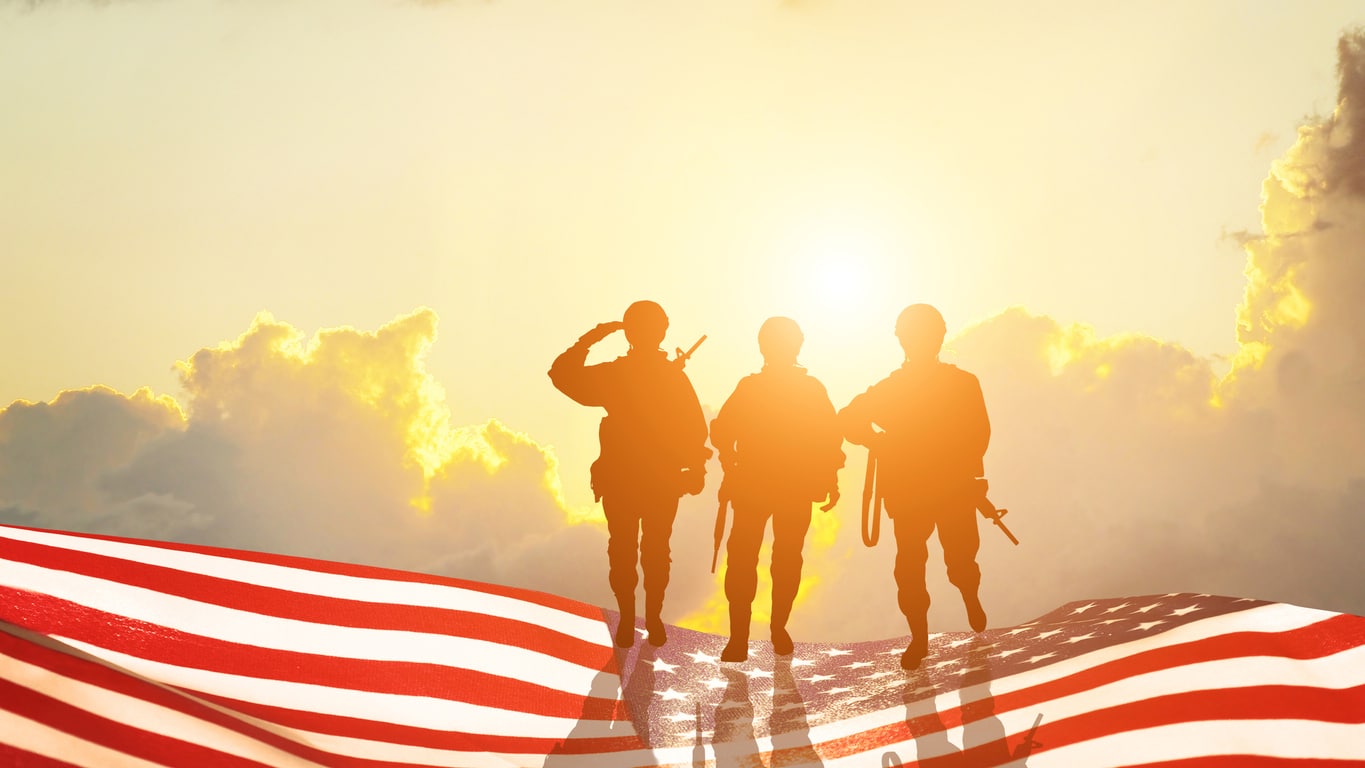By Anna McKenzie
Every year on July 4th, Independence Day, we celebrate our nation’s freedom and the people who have fought to keep us free — our military service members. But at times, it’s our present and former service members whose welfare is poorly prioritized.
Because of what they experience for the sake of our freedom, these men and women are more vulnerable to anxiety, post-traumatic stress disorder (PTSD), and other mental health conditions. There are ways we can be more helpful to our service members, and socially we can identify treatment as a brave and appropriate response to ongoing mental health challenges.
Upon hearing the sound of fireworks, a veteran may suffer a bout of anxiety; a veteran with severe PTSD may even hallucinate being back in a wartime situation.
Problems Veterans Face
The problems veterans face begin with their experiences in the service and on the battlefield. What they’re exposed to, what happens to them or their team members, and how they respond can leave both physical and psychological scars. According to a survey conducted by the RAND Corporation, one-third of service members returning from Iraq or Afghanistan (Operations Enduring Freedom and Iraqi Freedom) report having a cognitive or mental health condition as a result. Roughly 18% have met criteria for either PTSD or depression. Taking other wartime efforts into consideration the prevalence of PTSD among veterans ranges from 11-30%, according to the US Department of Veterans Affairs.
Suffering from a Traumatic Brain Injury (TBI) during deployment is not uncommon. In the RAND survey, nearly a fifth of veterans (about 19.5%) said that they had experienced a probable TBI during their tour. Of those, 7% also met criteria for a mental health condition. If the sample size of the study was any indication of the rates among the total population of service members deployed to Iraq and Afghanistan, then approximately 300,000 men and women who served are now dealing with PTSD or major depression.
The incidence of mental health conditions is only one problem veterans face. Another is the awareness and perception of treatment. The US Government Accountability Office (GAO) conducted a study revealing key barriers to treatment for veterans:
- Stigma related to treatment
- Lack of understanding or awareness of mental healthcare
- Logistical challenges to accessing mental healthcare
- Concerns about the care they might receive from the US Department of Veterans Affairs (VA) — especially that it is only for older veterans
Though the study pertained to barriers to receiving treatment from the VA, the GAO states that these barriers were not unique to the VA and may deter veterans from receiving treatment anywhere. Significantly, some veterans may perceive that treatment is only socially acceptable or provided for people of a certain demographic or age group.
It’s also not unusual for veterans to consider the need for treatment as a sign of weakness, especially given that individuals drawn to military service are proponents of strength and self-reliance. If asking for help is difficult for the average person, it is much more difficult for men and women who make their careers out of protecting others from danger.
The Irony of July 4th Celebrations: Fireworks and PTSD
Fireworks on July 4th are an American tradition, and many people look forward to setting off their own set or attending professional fireworks shows. Unfortunately, the sound of celebratory firework explosions is all too similar to the sound of exploding bombs and projectiles, even gunfire.
This similarity, in addition to the randomness of the explosive sounds, is one of the triggers of anxiety for veterans and may even activate their PTSD. The traumatized mind draws a strong association between certain sensations and the degree of accompanying danger. Upon hearing the sound of fireworks, a veteran may suffer a bout of anxiety; a veteran with severe PTSD may even hallucinate being back in a wartime situation.
In fact, a current or former service member with PTSD may experience the following symptoms:
- Insomnia or hyperarousal
- Deep anxiety
- Extreme irritability or severe mood swings
- Pervasive nightmares
- Intrusive negative thoughts or memories
- Auditory or visual hallucinations
Depression and withdrawal are also very common. Untreated PTSD, depression, and anxiety can tempt people to self-medicate with alcohol or drugs. Alcohol and drugs are seen as a solution to help manage bad feelings, negative thoughts, sleeplessness, and physical pain. This may partly explain why rates of addiction are slightly higher in veterans than the general population, with one in 10 veterans being diagnosed with a substance use disorder.
It’s important to be aware of the challenges our military face in the realm of mental and emotional health. If you plan to shoot off fireworks on the 4th, consider being considerate of veterans with PTSD by releasing only silent or soft-sounding ones or finding a remote location to celebrate.

If you are a current or former service member who may be triggered by the sound of fireworks, plan ahead to wear earplugs or noise-cancelling headphones. Tranquil music or nature sounds (like ocean waves) may also help to eliminate the sound of fireworks and help you stay calm. Swimming or floating in a bathtub can also provide relief from the noise.
If you find that your symptoms are ongoing and disrupting your life, consider the treatment options available to you. You may benefit from counseling or a full regimen of treatment designed to alleviate your suffering. You deserve the opportunity to feel better.
Taking other wartime efforts into consideration the prevalence of PTSD among veterans ranges from 11-30%.
PTSD Treatment for Veterans at The Meadows
If you or a loved one is suffering from PTSD, you can receive compassionate mental health treatment at The Meadows. We take TRICARE insurance and provide specialized care through a variety of treatment programs and research-backed methods. We have helped veterans embark on the road to recovery from both trauma and addiction, and we would love to help you engage in a program that meets your needs. Contact us today to learn more.

